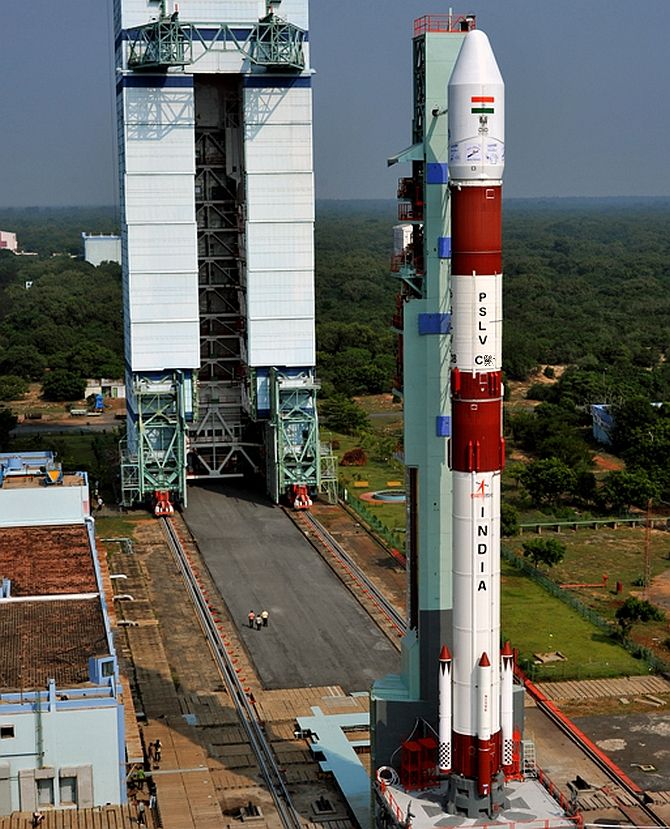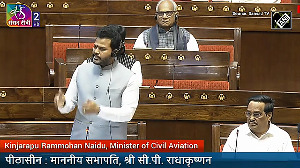 The launch, scheduled for July 10, will be just the fifth dedicated to carrying only satellites from abroad. It will be the first such launch utilising the most powerful version of the rocket, PSLV XL, which has already flown flawlessly eight times. Gopal N Raj reports.
The launch, scheduled for July 10, will be just the fifth dedicated to carrying only satellites from abroad. It will be the first such launch utilising the most powerful version of the rocket, PSLV XL, which has already flown flawlessly eight times. Gopal N Raj reports.
India's Polar Satellite Launch Vehicle will lift off from Sriharikota on July 10 taking five foreign satellites into orbit, including three earth observation spacecraft whose imagery will be utilised by a Beijing-based company as well as an experimental nano-satellite that will deploy a large, light-weight sail in order to hasten its descent back to earth.
Over the last two decades, the PSLV has notched up 28 consecutive successful flights, taking 72 spacecraft into orbit, including 40 foreign ones. The forthcoming launch, currently scheduled for July 10, will be just the fifth dedicated to carrying only satellites from abroad. It will be the first such launch utilising the most powerful version of the rocket, PSLV XL, which has already flown flawlessly eight times.
The payload capacity of forthcoming PSLV C28 mission will be almost wholly occupied by four earth observation satellites made by the UK-based Surrey Satellite Technology Limited, an independent company in the Airbus Defence and Space Group that specialises in small satellites.
Three of those satellites, each weighing about 449 kg and capable of taking high-resolution images down to one metre, are intended to form the DMC3 constellation. This constellation of satellites will be owned and operated by a SSTL subsidiary, DMC International Imaging.
However, the entire imaging capacity of the three DMC3 satellites has been leased to Twenty First Century Aerospace Technology Company Limited based in Beijing for a period of seven years. Previously the Chinese company had purchased a small earth observation satellite, Beijing-1, from SSTL; the satellite was launched aboard a Russian rocket in 2005.
“For this mission, 21AT decided to lease the data only as they preferred SSTL to track the satellites from our ground stations and look after the health of the satellites in orbit so that they can concentrate on the image data business,” said Joelle Sykes, SSTL's communications manager, in an email.
SSTL will also be flying a smaller microsatellite on the PSLV as a technology demonstrator to test certain earth observation capabilities and other techniques.
The fifth satellite in next month's launch is just 34 cm long and weighs only about 7 kg. The diminutive Deorbitsail, an experimental mission funded by the European Commission, will unfurl a huge sail made of light-weight material, 25 square metres in area but weighing no more than three kg, after it is safely in orbit.
The spacecraft will be oriented so that the sail catches thin wisps of atmosphere present at that altitude, thereby increasing the drag on the satellite and thus slowing it down. Losing velocity, the satellite will then spiral back towards earth and ultimately burn up in the atmosphere.
The sail is seen as a possible way to rapidly remove satellites that have reached the end of their life. These satellites might otherwise continue circling the earth for decades and add to the space debris that is already posing problems for both manned and unmanned spacecraft.
Several institutions have participated in the Deorbitsail project, with the University of Surrey's 'Surrey Space Centre' in the UK handling the coordination.
Image: The PSLV XL series rocket that will carry the satellites










